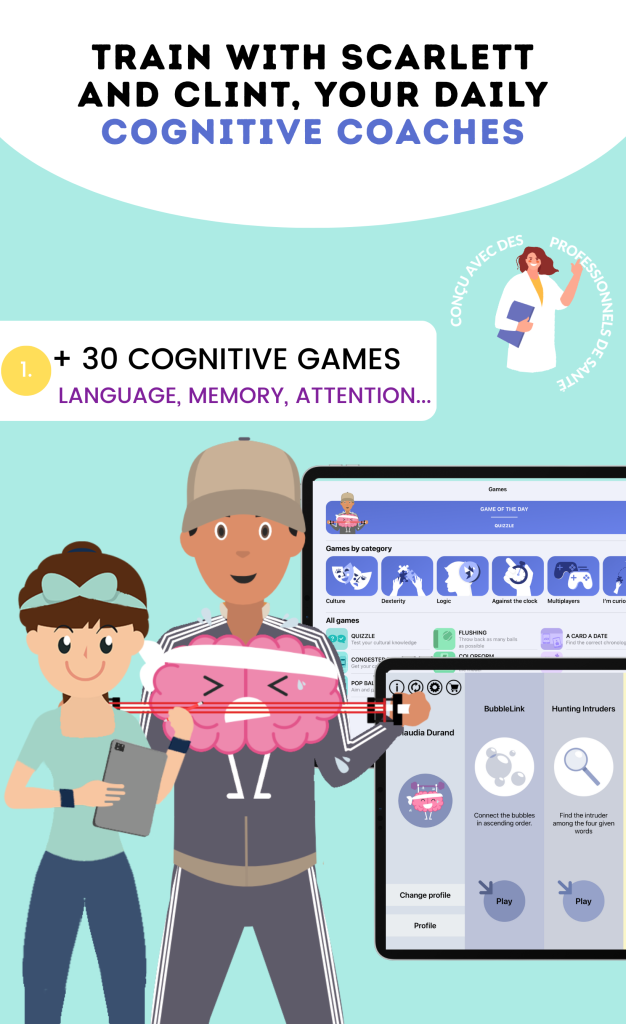Continuing education is crucial for home care aides, as it allows them to stay updated on the latest practices and techniques in healthcare. It also enables them to improve their skills and job satisfaction. Educational games can be a useful tool for continuing education, as they provide an interactive and engaging approach to learning. In this article, we will explore the benefits of continuing education for home care aides, the essential skills they need to possess, and how educational games can assist them in their professional development.
The benefits of continuing education for home care aides
Continuing education offers numerous benefits to home care aides. First, it allows them to stay updated on the latest practices and techniques in healthcare. Healthcare is rapidly evolving, and it is important for home care aides to be informed about the latest advancements in their field. Continuing education enables them to acquire new skills and knowledge that can improve the quality of care they provide to patients.
Moreover, continuing education can also enhance job satisfaction for home care aides. When they feel competent and confident in their skills, they are more likely to be satisfied with their work. Continuing education also gives them the opportunity to develop professionally and advance in their careers. This can be very motivating for home care aides, as it provides them with a sense of accomplishment and progress.
Essential skills for home care aides
Home care aides must possess a number of essential skills to provide quality care to patients. First, they must be able to communicate effectively with patients and their families. This includes the ability to listen attentively, ask relevant questions, and provide clear and understandable information.
In addition, home care aides must also be competent in medication management. This includes the ability to follow medical prescriptions, administer medications correctly, and monitor potential side effects.
Finally, home care aides must also be able to provide palliative care to patients at the end of life. This includes pain management, emotional support, and coordinating care with other healthcare professionals.
How educational games can help in continuing education
Educational games can be an effective tool for the continuing education of home care aides. They offer an interactive and engaging approach to learning, which can make the learning process more enjoyable and effective. Educational games allow home care aides to practice their skills and knowledge in a safe and controlled environment.
Furthermore, educational games can also help home care aides develop specific skills. For example, an educational game focused on communication can help home care aides improve their communication skills with patients and their families. Similarly, an educational game focused on medication management can help home care aides enhance their skills in managing medications.
Different types of educational games for home care aides
There are different types of educational games available for home care aides. Some games focus on improving communication skills, while others concentrate on strengthening skills in palliative care or medication management. It is important to choose the right type of game based on the specific needs of home care aides.
For example, an interactive role-playing game can be used to improve communication skills with patients. Home care aides can play different roles and practice various communication scenarios, allowing them to enhance their skills and confidence.
Games to improve communication with patients

Games represent an effective method for improving communication between caregivers and patients, especially in sensitive contexts where establishing an open and understanding dialogue is essential. For example, role-playing games allow for simulating typical caregiver-patient interaction situations, such as announcing a diagnosis, managing a concern, or discussing treatment options. These simulations provide caregivers with a safe and controlled environment to practice their communication skills, refine their empathy, and adjust their language according to the specific needs of patients.
Another useful tool is the use of specially designed card games with questions and answers related to healthcare. These games allow caregivers to initiate important discussions while putting patients at ease. The questions can address their concerns, expectations, or preferences regarding care, and the patients’ responses can guide caregivers in providing better-suited support.
These playful activities not only break the ice but also strengthen the trust between the patient and the caregiver. By making exchanges more interactive and less formal, they help create a space where the patient feels heard and valued.
Games to strengthen palliative care skills
Games can also be used to strengthen the palliative care skills of home care aides. For example, an interactive role-playing game can be used to simulate different palliative care situations, such as pain management or emotional support. Home care aides can play different roles and practice their palliative care skills in a safe and controlled environment.
Another example of a game to strengthen palliative care skills is a card game with palliative care scenarios. Home care aides can use this game to discuss different palliative care options with patients and their families.
Games to improve medication management
Games can also be used to enhance the medication management skills of home care aides. For example, a memory game can be used to help home care aides remember different medications and their appropriate doses. Home care aides can play this game regularly to reinforce their memory and knowledge of medications.
Another example of a game to improve medication management is a medication sorting game. Home care aides can use this game to sort different medications based on their characteristics, such as form, color, or dose.
Games to better understand the needs of patients with dementia
Games can also be used to help home care aides better understand the needs of patients with dementia. For example, a memory game can be used to help home care aides put themselves in the shoes of a patient with dementia and understand the difficulties they face daily.
Another example of a game to better understand the needs of patients with dementia is an interactive role-playing game. Home care aides can take on the role of a patient with dementia and practice different care situations to better understand the challenges these patients face.
Games to improve patient safety
Games can also be used to enhance patient safety. For example, a simulation game can be used to simulate different care situations and help home care aides make quick and effective decisions regarding patient safety.
Another example of a game to improve patient safety is a card game with questions and answers about patient safety. Home care aides can use this game to test their knowledge of patient safety and reinforce their understanding of best practices in care.
Games to build trust and empathy
Games can also be used to build trust and empathy with patients. For example, an interactive role-playing game can be used to simulate different care situations and help home care aides develop their ability to empathize with patients and understand their needs and concerns.
Another example of a game to build trust and empathy is a card game with questions and answers about emotions. Home care aides can use this game to discuss the different emotions that patients may feel and develop their ability to express empathy.
In conclusion, continuing education is crucial for home care aides, as it allows them to stay updated on the latest practices and techniques in healthcare. Educational games can be an effective tool for continuing education, as they offer an interactive and engaging approach to learning. They can help home care aides develop and improve their skills in areas such as communication, palliative care, medication management, understanding the needs of patients with dementia, patient safety, and building trust and empathy. It is important for home care aides to continue learning and training throughout their careers in order to provide quality care to patients.





